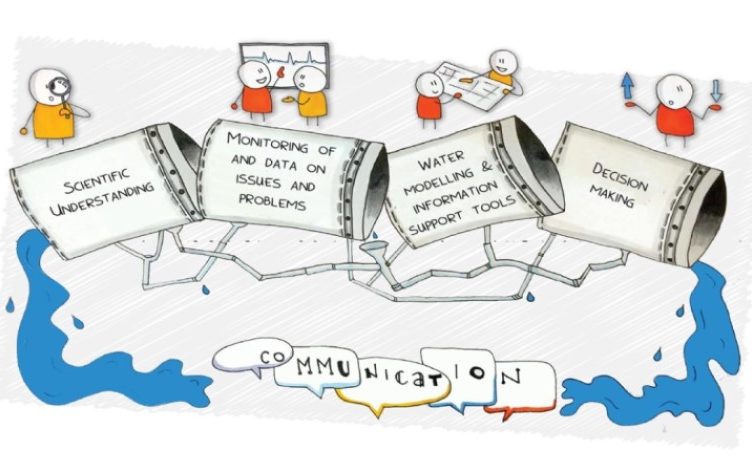
05/12/2024
Event Summary: Overview of water quality modelling projects from the Queensland Water Modelling Network with Callym Dunleavy
Read more
The QWMN Innovation Program is an applied Doctoral training and research program that focusses on building and using relationships between researchers, industry and government to catalyse innovation. The Innovation Program also focusses on building the next generation of water modelling leaders for Queensland - the Innovation Associates. There are five Associates in the first cohort of the QWMN Innovation Program, and Chinenye Ani is the Innovation Associate working with AIMS, James Cook University and C20 Consulting. This article is about her project on 'Biogeochemical modelling of tropical marine ecosystems in the context of climate change'.

Chinenye’s project will develop an improved marine biogeochemical model for the Great Barrier Reef (GBR) by critically re-evaluating the assumptions underpinning the mathematical representation of biogeochemical processes in the existing world-class eReefs model.
The eReefs model is a coupled hydrodynamic, biogeochemical and sediment modelling system that simulates the physical state and water quality of the GBR. Marine organisms represented by the eReefs model include plankton, corals, seagrasses and macroalgae. eReefs is one of the most important tools used by the Australian and Queensland governments to manage and preserve the GBR. eReefs applications include: assessment of catchment run-off impacts on GBR health, reporting on the condition of the GBR, evaluating crown of thorns starfish dispersal, and investigating the vulnerability of the GBR to ocean acidification and coral bleaching.

Currently, the eReefs model does not consider the temperature dependence of distinct marine organisms, the impacts of extreme events or the adaptation of marine organisms to climate change impacts. This results in uncertain predictions of marine ecosystem responses to increased temperatures. However, there are hundreds of laboratory experiments on temperature dependence, multiple climate change stressors, temperature limits / exposure etc. that can be used to improve model parameterisations. With these additions Chinenye anticipates that potential changes in benthic cover, plankton communities and calcifying organisms in response to temperature increases will be more reliably and accurately predicted. The outcomes of her Innovation Associate project could help the Office of the Great Barrier Reef and the Department of Environment and Science develop effective intervention strategies for water quality management.
Chinenye’s PhD candidature has been confirmed and she has already presented a poster entitled “Modelling the responses of marine ecosystems to climate change impacts” at the 23rd International Congress on Modelling and Simulation (MODSIM). Currently, she is working on improving identified eReefs model processes and gaining experience with the model. She is supervised by Dr Barbara Robson (AIMS), Dr Stephen Lewis (JCU), Prof. Jon Brodie (JCU/C20 Consulting) and Assoc. Prof. Scott Smithers (JCU). You can contact her here.